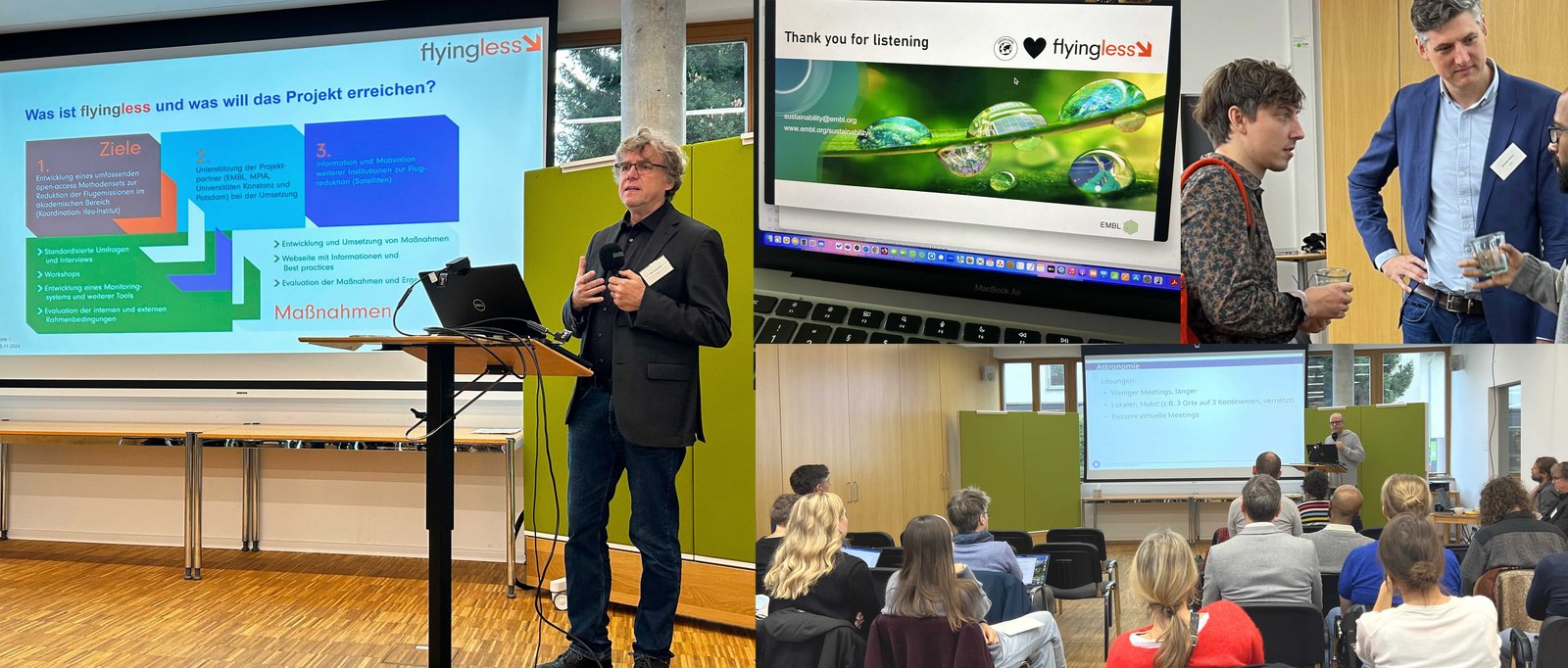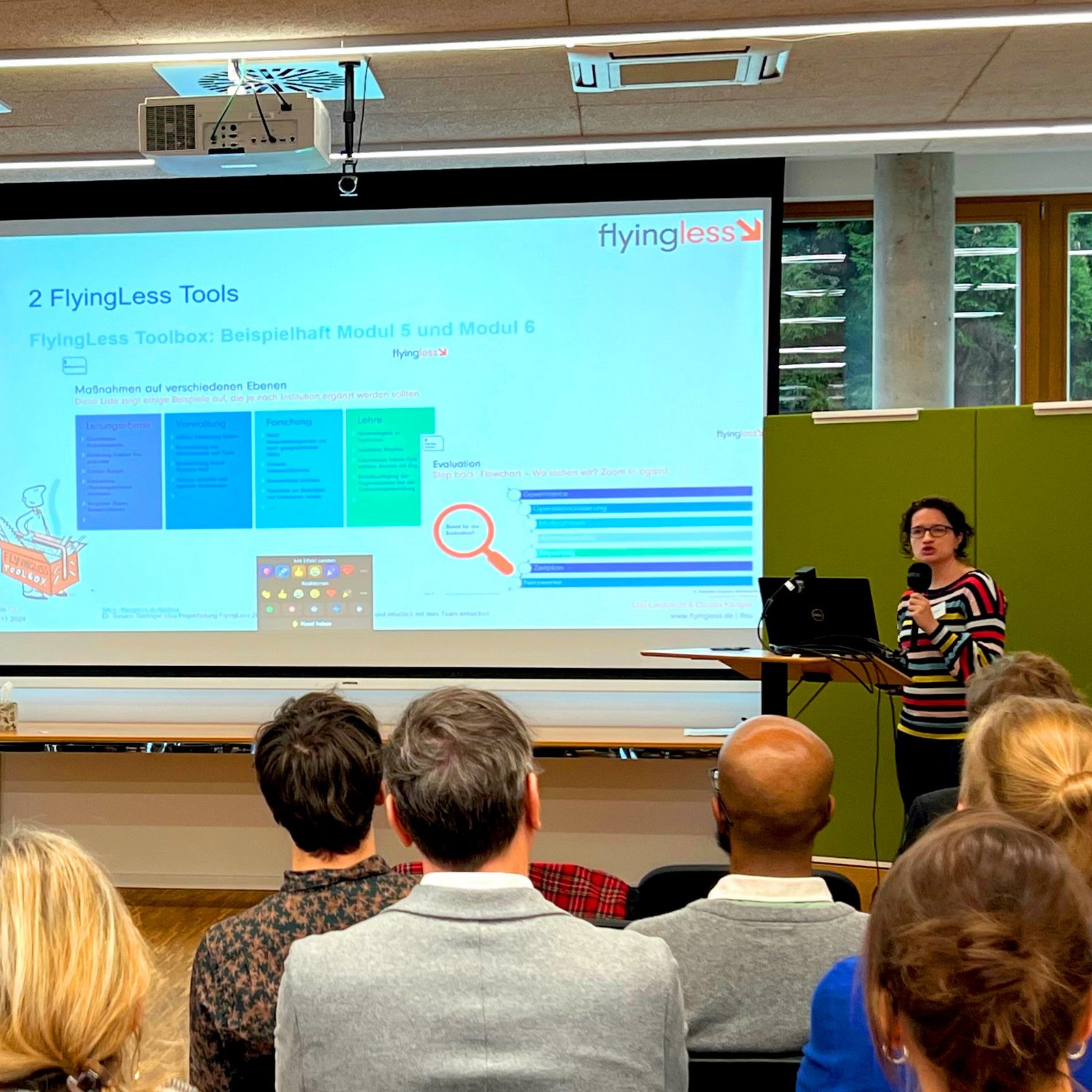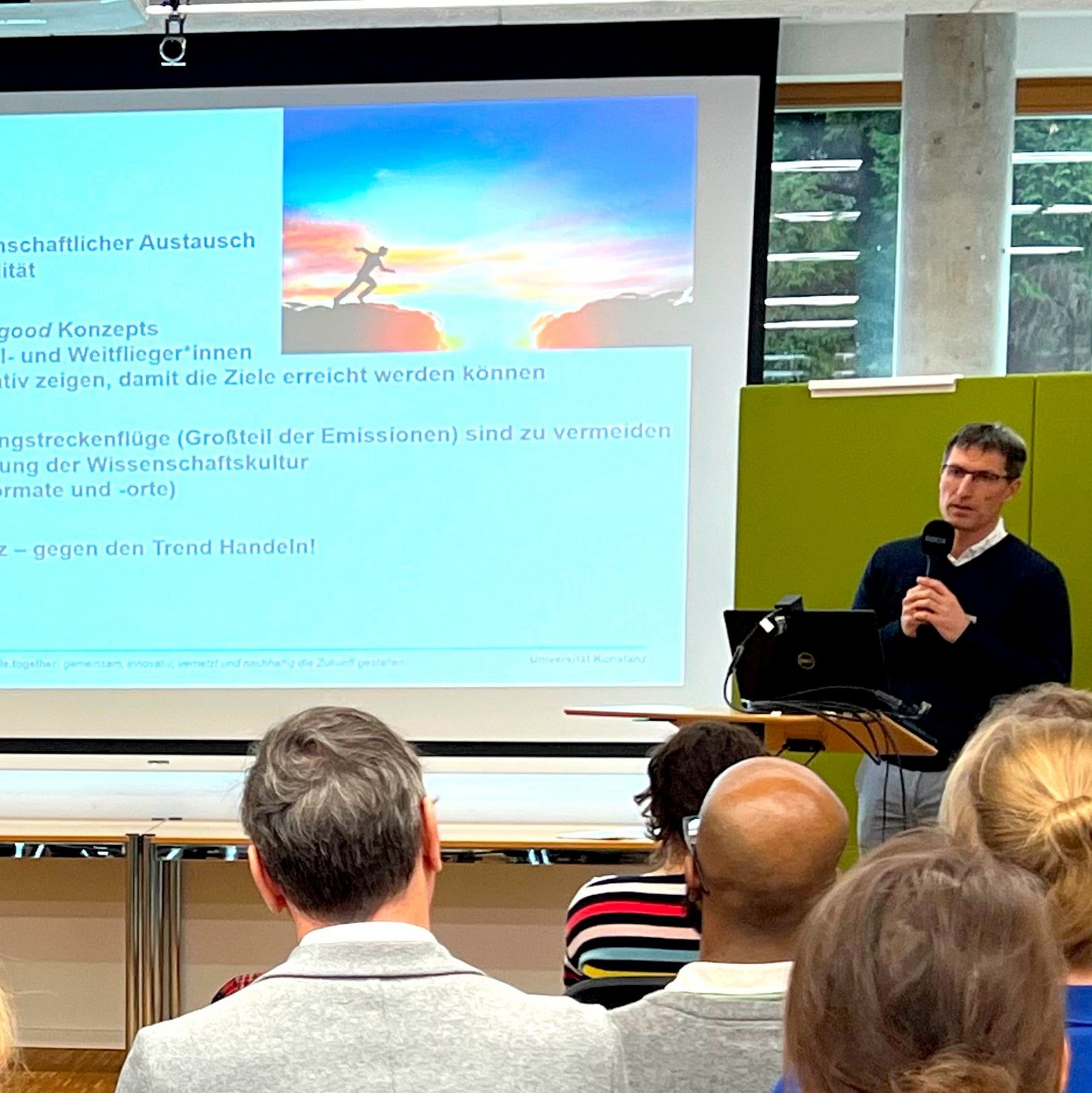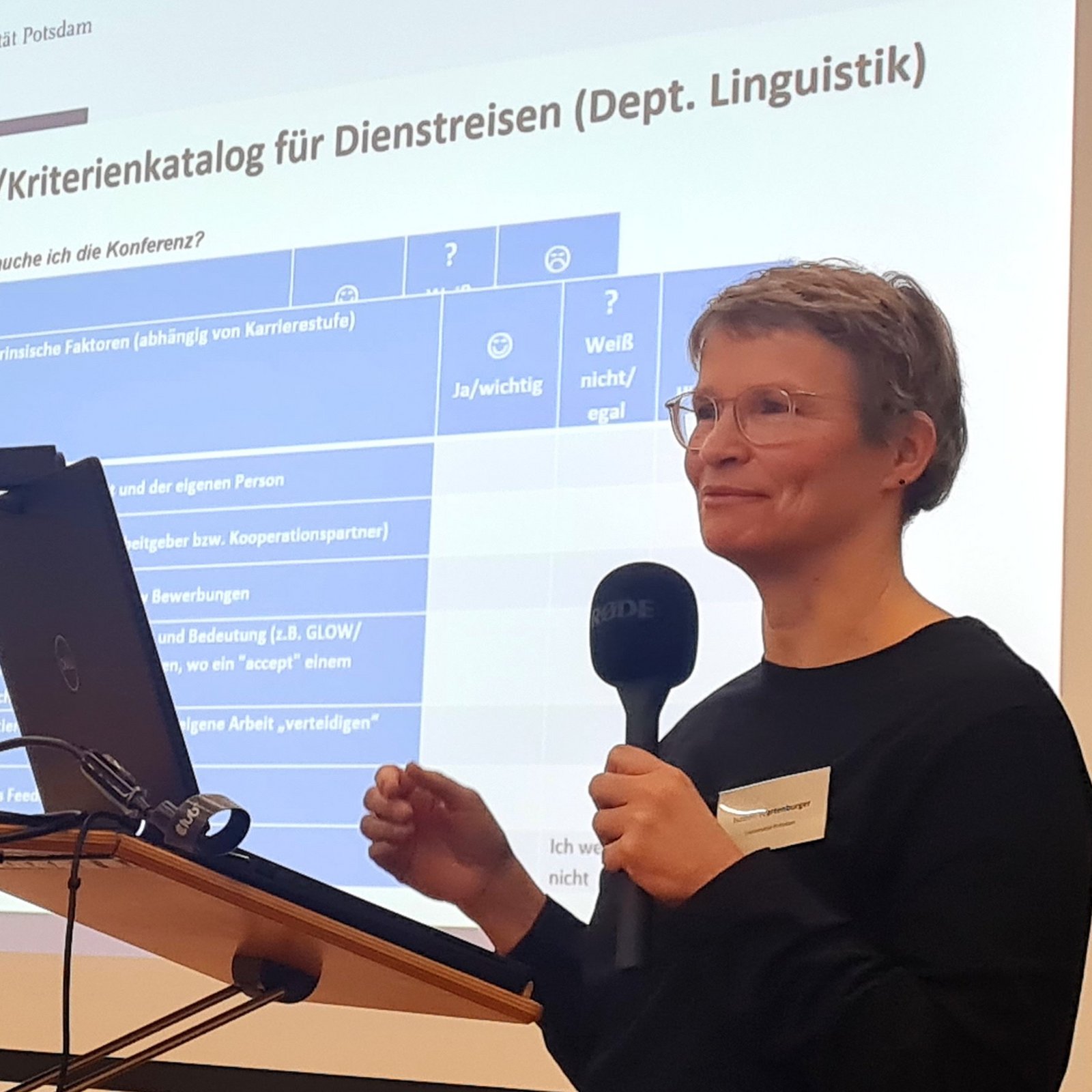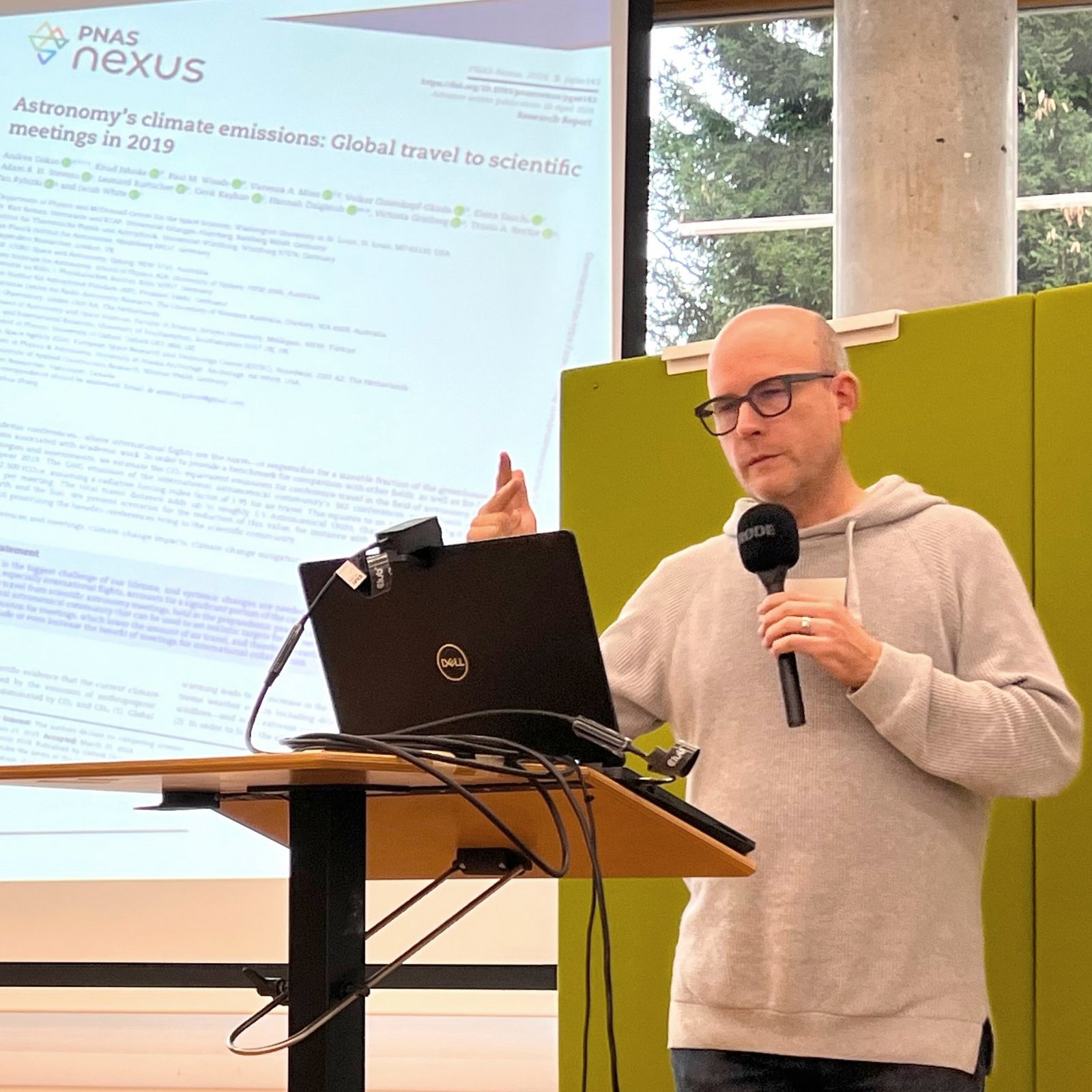On Monday, 25.11.2024, FlyingLess invited to Heidelberg. In the morning, the project results were presented and the partners reported on their experiences with reducing air travel to around 100 participants in Heidelberg and online. In the afternoon, various topics were discussed in depth in three workshops (download agenda, in German).
Keynote "Stay grounded, keep connected. Measures taken by Austrian universities to reduce air travel" (in German)
Prof. Dr. Günter Getzinger, TU Graz
Graz University of Technology has compiled a detailed greenhouse gas inventory and developed a roadmap for achieving climate neutrality by 2030. This makes it one of the pioneers at Austrian universities. In this presentation, the measures to reduce air travel will be described in more detail.
Keynote "Partnerships between funders and researchers for sustainability"
Dr. Philipp Weber, EMBO - European Molecular Biology Organization
In October 2024, the Heidelberg Agreement was initiated together with a multi-stakeholder group. Representatives from various European research and funding institutions have formulated a framework for focused funding of sustainable research.
FlyingLess project results and tools (in German)
Claudia Kämper, ifeu - Institute for Energy and Environmental Research
The presentation summarises the FlyingLess tools developed during the project. It also analyses the results of the surveys, the monitoring tool and the lessons learned from the project.
Connecting science across Europe with fewer emissions - Reducing business flight emissions at EMBL
Brendan Rouse, EMBL - European Molecular Biology Laboratory (Heidelberg)
The European Molecular Biology Laboratory in Heidelberg has reduced business travel emissions by 40 % compared to 2019. Brendan Rouse describes the activities at EMBL, such as the working group, the sustainability strategy, measuring progress and participation in the FlyingLess project.
Air Travel Policy and the Carbon Tax Incentive Model. The journey of Konstanz! (in German)
Dr. Hilmar Hofmann, University of Konstanz
The University of Konstanz has already adopted a travel policy in 2021 that defines targets and measures to reduce climate-damaging air travel. One particularly interesting measure is the "Carbon Tax" incentive model. This instrument rewards working groups that generally fly less or have reduced their air travel.
Creating the basis for further reductions - the path of the University of Potsdam
Prof. Dr. Isabell Wartenburger, University of Potsdam
The University of Potsdam's sustainability guidelines and mobility concept have identified business air travel as an important lever for reducing greenhouse gas emissions. Isabell Wartenburger shows where the FlyingLess workshops, tools and surveys have provided support.
International astronomy in the focus of flight reduction (in German)
Dr. Knud Jahnke, MPIA - Max Planck Institute for Astronomy (Heidelberg)
At the Max Planck Institute for Astronomy, the topic was initially pursued by a sustainability group of interested scientists. The group identified a very high volume of air travel per scientist and, in particular, analyzed the emissions of the scientific community's global conference mobility.
